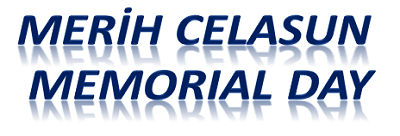Theme of the 2013 Merih Celasun Awards:
Candidate academic studies are expected to address “Turkey’s urbanization and its economic repercussions” as this year’s theme. Subjects related to this field include but not limited to the following. Since urban economics is rather an emerging field for Turkey’s economists, research areas cover a broad range of subjects related to Turkey’s economic and urbanization challenges. Yet, applicant studies are expected to focus directly on Turkey and benefit from international practices and experiences in doing so.
- Policies that shed light on the impact of the urbanization process on Turkey’s economic development, assess the opportunities and threats provided by this relationship, and help in overcoming relevant threats,
- Relationship between urbanization, urban rent, land price speculations, capital accumulation, zoning regulations, and tax policies, and housing market transformation; supply-demand trends for different housing types,
- Relationship between economic externalities of urbanization and productivity gains, labor market transformation, emerging and declining skills, and relevant public policies,
- Clustering trends across firms, impacts of clustering on firm productivity, and repercussions for urbanization process and regional disparities in development,
- Relationship between industrialization and urbanization, reflection of industrial transformation trends on urban structure, generation and utilization of industrial land, transformation of land profits for different sectors (agricultural, housing, manufacturing, office),
- Relationship between city sizes, population trends, urban system, agglomeration economics, optimal city size, urban macroform, land usage preferences (compact city, vertical growth and urban sprawl), congestion problems, and economic performance,
- Relationship between urbanization and environmental economics; urban density, energy usage, positive and negative externalities, and the impact of relevant public policies,
- Impacts of inter-city transportation networks on regional development disparities; contributions of connectivity level and accessibility trends to economic transformation,
- Impacts of agglomeration economies and urbanization on entrepreneurship, innovativeness, and clustering,
- Options for urban transportation infrastructure, private automobile usage, public transportation trends and economic and environmental outcomes, congestion and counter policies,
- Relationship between urbanization and security; trends in crime rates, spatial dynamics of crime and relevant public policies,
- Relationship between urban life quality and economic performance, impacts of urban design on the level of happiness and relevant public policies, walkability of cities and best practices,
- Local administrations, local government expenditures, and decentralization,
- Urban governance, the problem of scale in service provision, and administration in different urban scales: metropolitan municipalities and small municipalities,
- Local governance at district level and incorporation with city governance,
- Benefits and threats of large-scale urban investments and relevant issues in planning and implementation,
- Relationship between urbanization, urban stratification and regional development.

